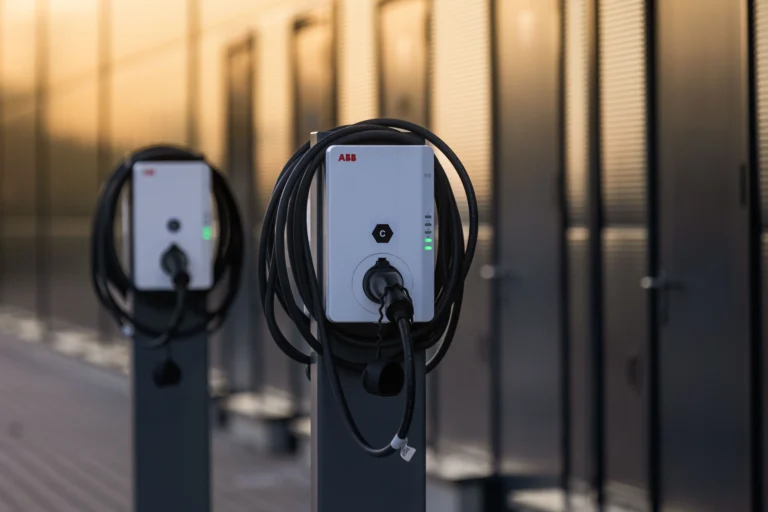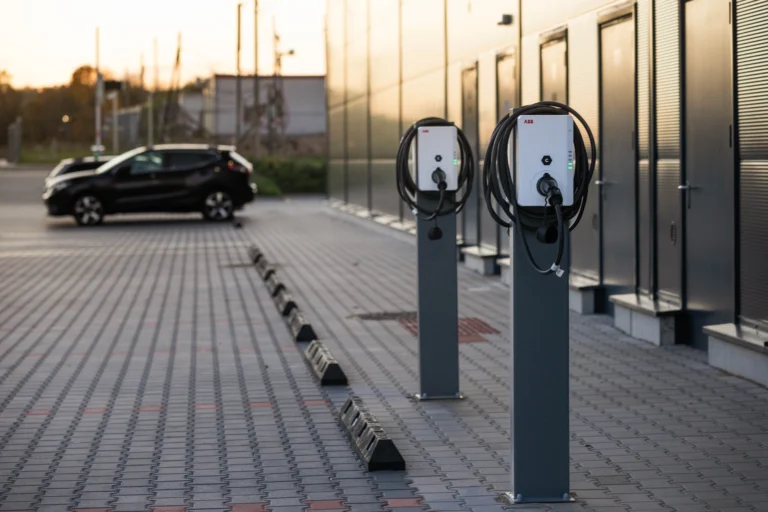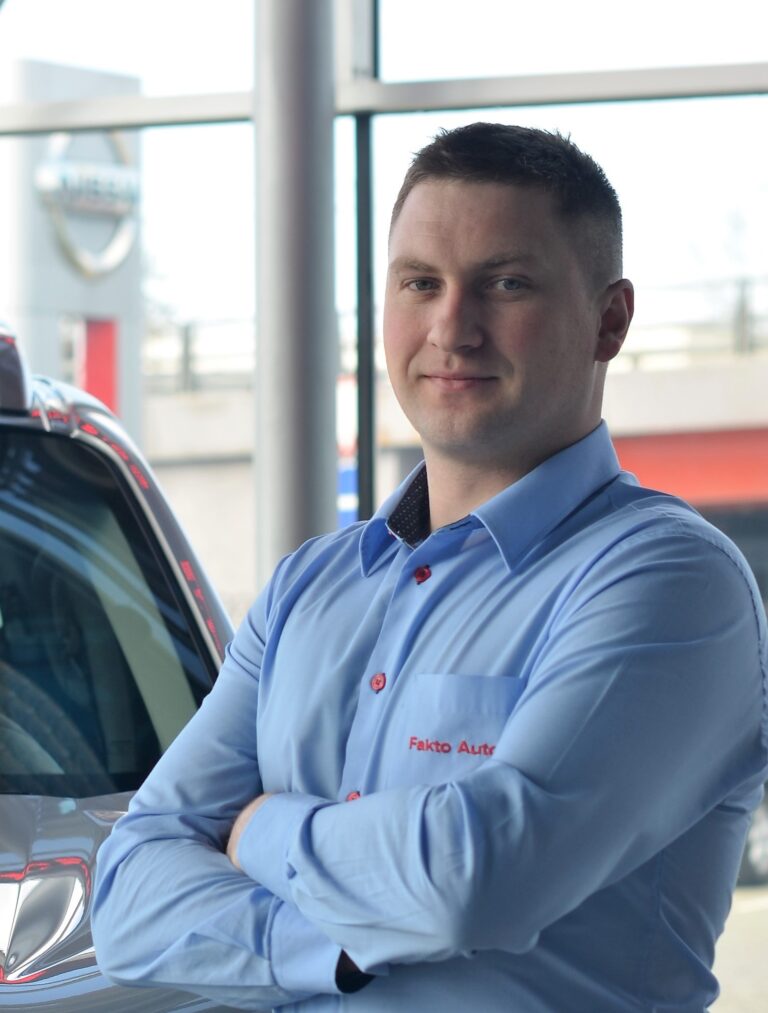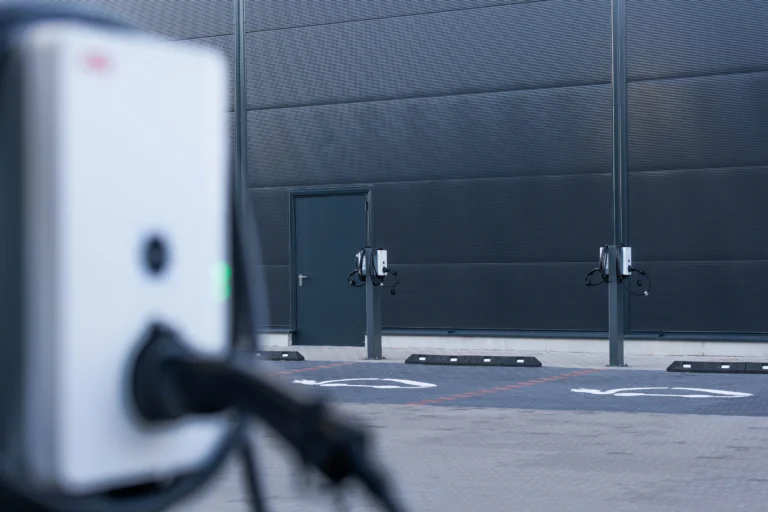Pagrindinis » News » Electrifying business: how does state support work in practice?
Not only state-owned companies, but also private businesses are announcing major upgrades to their fleets with electric cars. What drives such change, can it be comfortable and painless in terms of initial investment?

While individuals are often guided by emotions or personal preferences when choosing a car, legal entities make decisions based on rational calculations and company policy. While at first glance, this would seem to suggest that many businesses should bypass expensive electric cars when renewing or adding to their fleet, the reality is that more and more businesses are buying clean, electric cars.
The European Union has set a target to become pollution neutral, which means that electric cars are compensated. In Lithuania, for example, when buying a new electric car from the state, a natural person can get a refund of 5,000. euros, and a legal entity – EUR 4,000. euros. The latter, if it buys up to 50,000. In some cases, the final price of an electric vehicle can even be lower than that of an equivalent internal combustion engine car.
“We started electrification already 5 years ago, driven by our Group’s overall sustainability policy and ESG strategy. The first important aspect is more sustainable travel. Of course, there are also advantages to using electric vehicles in the city, such as free parking spaces, and until the end of this year there is no road tax for electric goods vehicles,” explained Karolina Tomkevičiūtė, Communications Manager at JCDecaux Lietuva, whose company is expanding the fleet of electric vehicles.

Today’s policies to promote clean transport make EVs attractive to companies not only from a sustainability perspective, but also from a financial one: they are worth buying and operating. However, there may be limiting factors, the biggest of which is charging. It can take quite a long time, and the infrastructure of the stations can prove underdeveloped and inconvenient, while the cost of energy is also a stumbling block in a number of public fast-charging stations.
The best way to do this is to set up your own charging stations at your office or industrial premises, which not only make it more convenient to charge your car, but also cheaper than the cost of your electricity, or even free of charge if you have invested in solar energy. Car showrooms are following suit.

“Although the electrification process is still relatively new, we are already seeing some benefits from installing our own charging stations,” commented Valdemaras Rudzys, Head of Aftersales Service at Fakto Auto. “For example, our customers appreciate the opportunity to charge their electric cars during the service, which gives them added convenience and ensures that their vehicle is ready for the road when they visit our dealership. In addition, the charging stations encourage our employees to choose electric cars more often and contribute to strengthening the company’s sustainability culture. In terms of challenges, the infrastructure development costs are the biggest part of the challenge, but we believe that this investment will pay off in the long run.”
Providing your own infrastructure can create convenience and save money in the long term, but requires a significant upfront investment. But to make clean mobility more attractive to business, the state is again stepping in. The Lithuanian Energy Agency (LEA) invites legal entities to apply for support for the installation of private charging stations for electric vehicles at workplaces until 29 August this year. Up to 50 % of the support. the cost of purchasing and installing a charging point, which is fixed: a company can receive €992.97 for each charging point installed on a wall and €1661.91 for each charging point installed on the ground.
“The intensity of support for legal entities is very high and most of the costs are returned to the companies when they install the stations. If a company installs 10 or more charging stations, which are mounted on a rack, then there is a high probability that the LEA grant will cover all the costs of installing the charging stations”, commented Paulius Gūžys, CEO of the company installing the charging stations, Įkrautas.
The main requirement for a stop to qualify for compensation is that it must have a dynamic power control unit.
“The process of installing the charging stations required some preparation and technical solutions, and may require additional adaptations to the electricity grid or upgrades to the infrastructure, but working with our partners we were able to smoothly handle the challenges,” said a representative of Fakto Autocentras, which has installed 12 charging stations, pointing out that it is easy to install the stations with the help of specialists.
It’s no secret that some businesses are considering electrification more from an economic point of view, in order to save money. However, it is important to realise that the economic benefits are long term, requiring a considerable initial investment to freeze the money, as the timeframe for assessing the grant is 55 days and in some cases can be up to half a year.
“As it can take between 4 and 8 months to receive compensation, Charged suggests that companies should not freeze their funds. This means that “Įkrautas” will install the stations free of charge, and only when the company receives compensation from the LEA will it pay us. In this case, the company will not have to pay for its own infrastructure of charging stations”, – Paulius Gūžys provided a solution to these concerns.
Policies to promote clean transport work. Compensation for EVs makes them competitive and worthy of attention, while support for in-house charging infrastructure in the workplace makes EVs convenient and cheap for business. This is reflected in sales of electric cars. The State Forest Enterprise has purchased 89 electric cars, Telia has almost 200 electric cars in its fleet, and a number of couriers are transporting parcels in cities in clean buses.

We use cookies to ensure that our website runs smoothly and to provide you with the most relevant content. You can choose which cookies you accept.